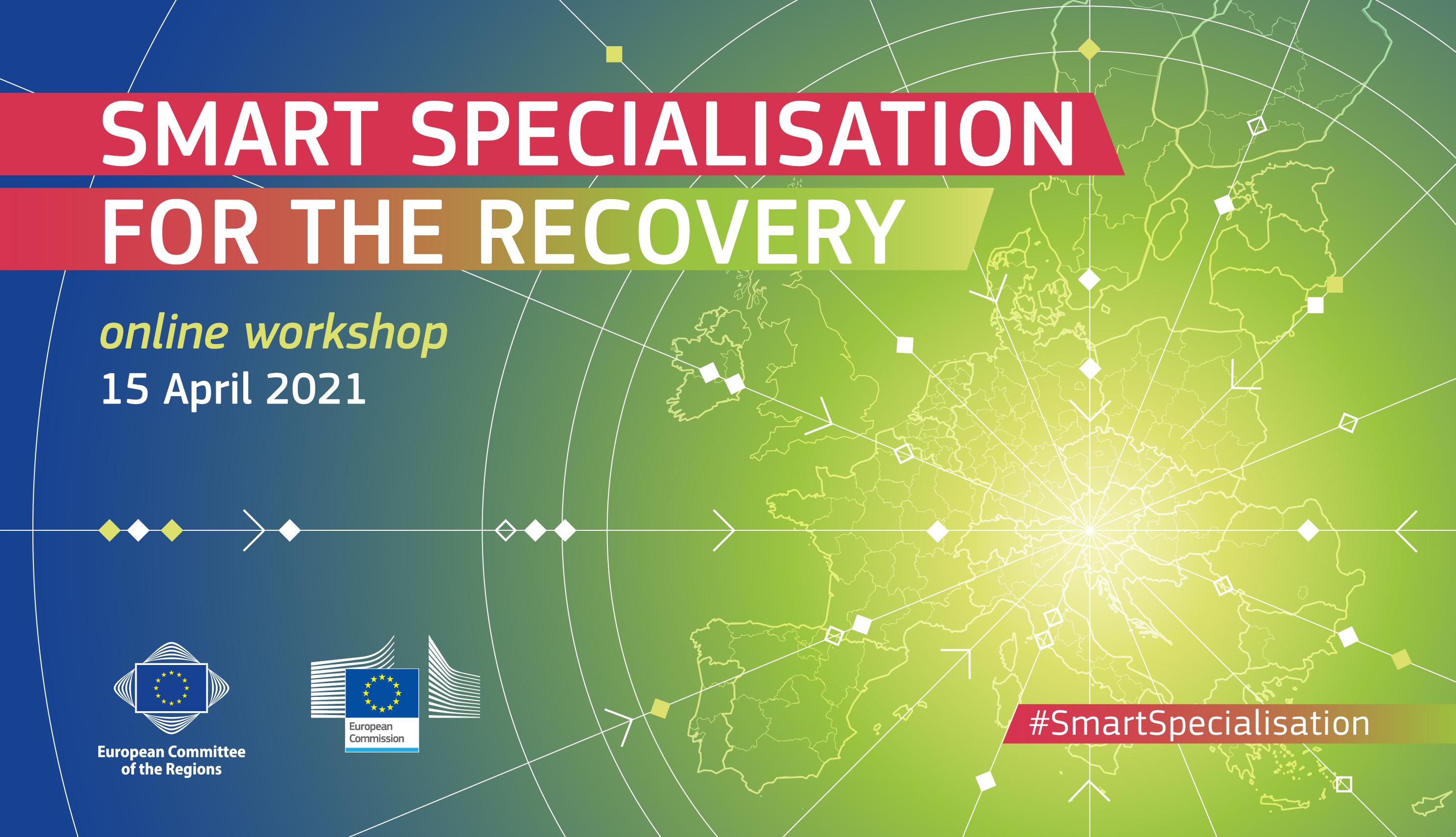Foreword from Xabier Goenaga, Head of the Knowledge for Finance, Innovation and Growth Unit at the Joint Research Centre

date: 19/04/2021
See also: S3 Platform website
Foreword from Xabier Goenaga, Head of the Knowledge for Finance, Innovation and Growth Unit (B7) at the Joint Research Centre
This event on 15 April 2021 marks a milestone in the history of Smart Specialisation. Key policy-making protagonists in Smart Specialisation - the Committee of the Regions, the Commissioner for Cohesion and Reforms, the Commissioner for Innovation, Research, Culture, Education and Youth, DG REGIO and the Joint Research Centre - agreed on the relevance of Smart Specialisation to the recovery. Building on its eight years journey of policy learning in Cohesion policy, the Smart Specialisation approach is now ready to go one-step further, to take up the new responsibility of buttressing economic recovery in regions, cities and local communities.
Before an audience of 928 participants, all speakers agreed that Smart Specialisation has the potential to become a decisive vehicle for economic transformation, fostering the new green and digital economy all across the EU. They even warned that without an explicit mobilisation of Smart Specialisation Strategies, many regions and places across the EU stand the risk of falling behind in this historic EU investment. Smart Specialisation is uniquely well positioned to connect EU-level policies and instruments to place-based strategies, pursuing real impact for citizens, while mitigating the risk of regions falling behind. Smart Specialisation Strategies can also enable concrete synergies on the ground, where different funding streams complement each other within a consistent and place-based vision.
This event on 15 April 2021 combined political vision with concrete avenues of action. The speakers presented policy lessons from their experience with Smart Specialisation Strategies. Implementation patterns differ across regions and states; improvements are still possible in terms of governance, strategy design, monitoring and evaluation, as well as policy impact. This journey of policy learning is bound to continue over the years to come.
Moreover, this event shifted the paradigm from S3 to S4, from RIS3 to RIS4, i.e. the regions that prove successful will upgrade their Smart Specialisation Strategies to make them also sustainable. The JRC can help with new methodologies and tools. These methodologies introduce a bottom-up directionality towards sustainability, while fully embracing transformative innovation. They outline new avenues for multi-level governance. More than an objective in itself, innovation is a powerful vehicle for regional economic transformation, including experimenting and building place-based energy, housing, mobility, and industrial systems for the future. The regions that convincingly pursue such experimentation will attract innovators and incentivise local firms to innovate, to adapt their products and services for the future global economy.
In the context of the UN 2030 agenda for Sustainable Development Goals, the Green Deal works in tandem with Europe’s Smart Specialisation approach. Well beyond the EU, countries and regions in Africa, Latin America and Asia are interested in applying Smart Specialisation as a place-based transition pathway towards achieving the UN Sustainable Development Goals. In other words, the new generation of S4 policy is already active in Europe’s multilateral role in the world, an innovation policy for global sustainability and inclusiveness.
In conclusion, this event on 15 April 2021 conveyed a message to regions and countries across and beyond the EU: if you are interested in improving and upgrading your strategy for sustainability and recovery, the EU institutions are ready to accompany you in this necessary and engaging journey.
NB: In the next issues of the S3 Newsletter (https://s3platform.jrc.ec.europa.eu/s3-platform), a dedicated section will allow responding to the questions raised by stakeholders during the event, which could not be addressed for lack of time.

